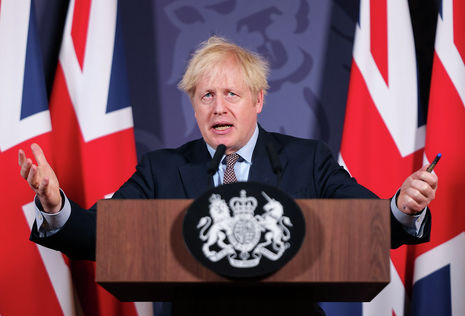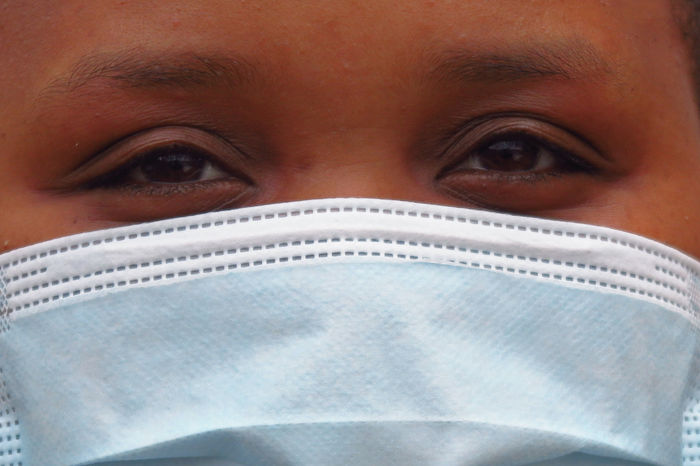Why we need a Covid inquiry now
Talal Hangari argues that a public inquiry into the government’s pandemic response is of the utmost importance.

The UK has suffered more than 120,000 deaths as a consequence of the government’s handling of the Covid-19 pandemic, leaving us with the fifth highest death toll in the world and one of the worst death rates. This level of preventable human suffering means it is imperative that the resources of the state be mobilised to investigate the government’s pandemic response. There must be a public inquiry to ensure that the same mistakes are not repeated in the future.
Qualified medical experts and epidemiologists have frequently commented on the failures of the government’s strategy. Devi Sridhar, Professor of Global Public Health at the University of Edinburgh, has pointed out that the UK, ‘had no border policies in place for months’, including when lockdown first began in March. Travellers ‘from any country’ could enter the UK without having had a Covid test. The government only decided to demand that arrivals to England present a negative Covid test on 8 January 2021. There’s no question that this delay demands both the explanation and accountability that an inquiry can offer.
“Cataloguing the policy errors and those responsible for them will encourage future governments to take threats to public health seriously.”
Richard Horton, editor of the Lancet, one of the UK’s leading medical journals, has described the government’s pandemic response as ‘the greatest science policy failure for a generation’. He called the government’s delay in ordering the first lockdown a ‘national scandal’. According to Neil Ferguson, epidemiologist at Imperial College, the UK locking down a week earlier could have saved around 20,000 lives. Cataloguing the policy errors and those responsible for them will encourage future governments to take threats to public health seriously, particularly given that the findings of public inquiries tend to draw significant press coverage.
But perhaps all this talk of preventable catastrophe is uncharitable to the government. They were facing a novel coronavirus and certain to make mistakes, some might say. But this argument starts to fall apart when you consider that around half of the UK’s death toll has been reported since mid-November, that is, eight months after the WHO declared Covid-19 a pandemic. Whether we ought to pardon the government for its early choices is itself arguable – whereas New Zealand and Australia closed their borders to most travellers in March last year, the UK did not. Instead, government advisers like Sir Patrick Vallance spoke publicly of the government’s ‘aim’ to build up ‘herd immunity’ in less vulnerable parts of the population.
“Our response has been characterised by sluggishness and incompetence.”
It is because of all of these apparent failures that a rigorous examination of the government’s decision making is necessary. Comparing the UK to other countries only adds to the urgent need to uncover why our response has been characterised by sluggishness and incompetence – Vietnam, a country of 90 million, has only had 35 Covid deaths thanks to its rapid and stringent measures. Many of those who died in this country died needlessly. The government’s only real success seems to be in the running of the vaccination programme.
If we add to the government’s ineptitude its blatant corruption, manifested in its penchant for giving Covid contracts to Conservative party donors, there are very strong grounds for an inquiry. One investigation recently found that contracts worth £881 million have been awarded to individuals who have given a total sum of £8.2 million to the Conservatives. Though no direct exchanges have been identified, these contracts deserve closer scrutiny.
Boris Johnson has committed to holding an inquiry ‘in the future’, but argues that now is not the ‘right moment to devote huge amounts of official time to an inquiry’.
This is nonsense meant to protect Mr Johnson’s political position. The House of Commons’ Public Administration and Constitutional Affairs Committee published a report on holding a public inquiry in September 2020. It stated that, ‘given the time an inquiry typically takes to begin its evidence gathering, the Government should announce the inquiry into the response to the coronavirus immediately’. The report further warned that ‘delaying the set-up will inevitably delay the inquiry’s ability to start work in earnest’.
It seems probable that Mr Johnson does not want an inquiry’s work to start in earnest any time soon. The claim that an independent inquiry would simply take up too much government time isn’t plausible given the fact that an inquiry might take months to prepare itself administratively before actually starting to collect evidence from the government. It seems instead that Mr Johnson wants the report of any inquiry, if he holds to his assurance that one will be held, to be delayed until he feels he can weather or avoid its political ramifications.
Of course, Mr Johnson should have no problem announcing an inquiry right now. He has said that his government ‘did everything we could’ to limit the pandemic’s impact. One would then expect that the Prime Minister, totally confident in his government’s excellent pandemic response, would have no trouble setting up an inquiry immediately. But Mr Johnson’s resistance to starting an inquiry at once means that at some level he knows this pandemic response has been horribly botched. The government did not do everything it could have done, and a good report is not expected to result.
An independent public inquiry into the government’s Covid response must be set up immediately. Too much time has already been wasted – if Boris Johnson believes his government did everything it could, he has nothing to fear.
 News / Colleges charge different rents for the same Castle Street accommodation2 March 2026
News / Colleges charge different rents for the same Castle Street accommodation2 March 2026 News / News in Brief: waterworks, wine woes, and workplace wins 1 March 2026
News / News in Brief: waterworks, wine woes, and workplace wins 1 March 2026 News / Climate activists protest for ‘ethical careers policy’1 March 2026
News / Climate activists protest for ‘ethical careers policy’1 March 2026 News / Angela Merkel among Cambridge honorary degree nominees27 February 2026
News / Angela Merkel among Cambridge honorary degree nominees27 February 2026 News / Private school teacher who lied about Cambridge degree barred from teaching27 February 2026
News / Private school teacher who lied about Cambridge degree barred from teaching27 February 2026









